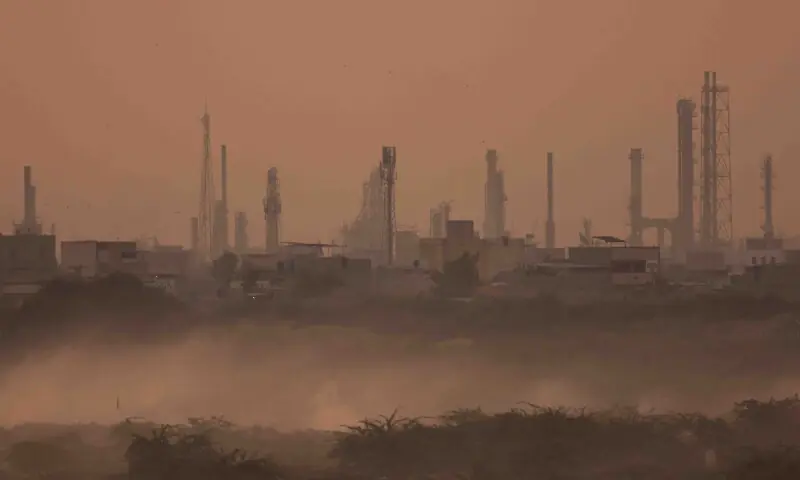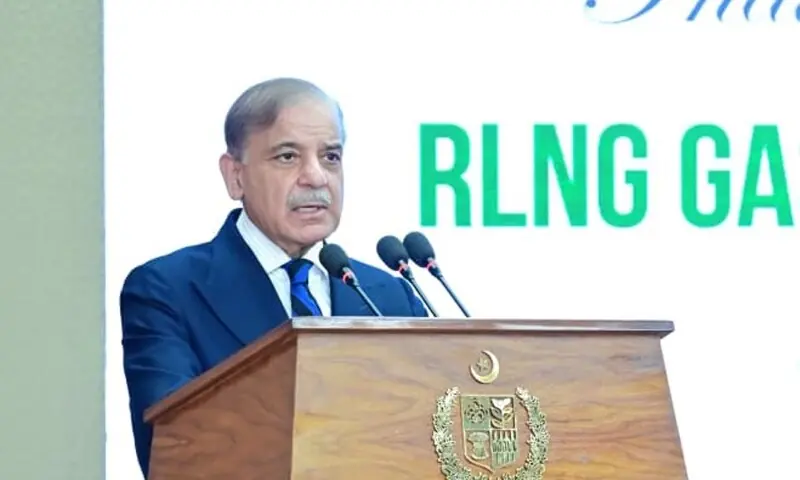Punjab Information Minister Azma Bokhari on Sunday maintained that there was no ban on inter-provincial movement of wheat and termed the “ongoing propaganda in this regard baseless and contrary to facts”.
His statement, released by the government APPLICATIONIt comes after the Punjab government faced criticism from the Khyber Pakhtunkhwa and Sindh governments for allegedly strangling the flow of wheat to the two provinces.
In a letter dated October 23, the KP government asked Punjab to remove restrictions on inter-provincial movement of wheat and flour, warning that the restrictions were disrupting supply chains, increasing prices and threatening food security in the province.
Meanwhile, PPP leaders in Sindh also lashed out at the Punjab government, accusing it of restricting the supply of wheat seeds.
Rejecting these “claims,” Bokhari clarified that inter-provincial transportation of flour “continues in a transparent manner through official permits, ensuring a clear and traceable record of all shipments transported out of the province,” according to the statement. APPLICATION saying.
Criticizing the KP government, he said that “if the province’s demand for flour has exceeded its production capacity, the provincial government should release its own stored wheat or procure it” from the Pakistan Agricultural Storage and Services Corporation (Passco).
“Punjab cannot compromise the right of its people to affordable flour for the sake of another [party’s] political theater,” he said.
The minister claimed that more than 200 flour mills in KP were currently non-operational and said the province’s chief executive should “focus on reviving these mills instead of staging protests in front of Adiala Jail”, an apparent jibe at KP CM Sohail Afridi, who had staged a sit-in outside the jail after he was not allowed to meet jailed PTI founder Imran. Khan.
In May of this year, the federal Minister of Food informed the National Assembly that Passco was going to be abolished. The policy has since been reversed under a national wheat policy, but the procurement modalities remain controversial.
It was also said that in the policy there would be no restrictions on inter-provincial movement of wheat.
Reiterating in his statement that there was “no prohibition” on the inter-provincial movement of wheat or flour, he said that under Article 18 of the Constitution and relevant laws, permits and digital monitoring had been made mandatory to prevent hoarding and speculation.
The minister further said that the welfare of the people of Punjab remained the top priority of her government and that “availability and affordability of flour for all citizens has been fully ensured.”
“This pro-people style of government is what some elements find difficult to digest,” he said.
Bokhari added that the Punjab government was “using taxpayers’ money to provide subsidized wheat to ensure public relief and avoid any potential crisis during the dry months.”
“Punjab currently holds 0.885 million metric tonnes of wheat reserves, valued at around Rs 100 billion. This reflects the far-sighted and organized policies of [Punjab] Chief Minister Maryam Nawaz.”
Bokhari further claimed that flour mills were supplied with wheat at Rs 3,000 per maund (40 kilograms) to “maintain constant availability and price stability in the market”.
Wheat restrictions
After the floods, the Punjab government began tightening controls on the interprovincial movement of wheat and flour through a permit regime to curb price increases within the province, a move that has been particularly denounced by KP amid rising prices and wheat shortages.
The restrictions have also drawn strong criticism from politicians and flour millers who argue they violate constitutional rights and a recent deregulation agreement.
While Punjab officials denied a formal ban, they acknowledged setting up checkpoints to curb what they called “unusual” movement of wheat. Critics, however, argued that these measures go against the spirit of a liberalized market.
In the KP government’s letter dated October 23, the provincial food department had said the inter-provincial restrictions on wheat were “inconsistent” with Article 151(1) of the Constitution, which guarantees “freedom of inter-provincial trade and movement of goods throughout the country”.
“Khyber Pakhtunkhwa, being a wheat-deficient province, is highly dependent on inter-provincial supplies from Punjab to meet its daily wheat requirements of approximately 14,500 metric tonnes,” the letter said.
“The current restrictions have seriously disrupted the flow of wheat and flour into the province, thereby threatening food availability and destabilizing market prices,” he added.







